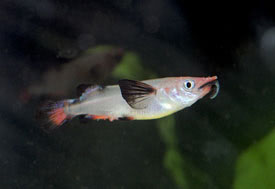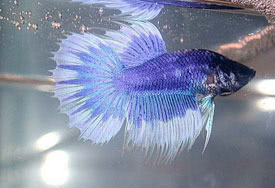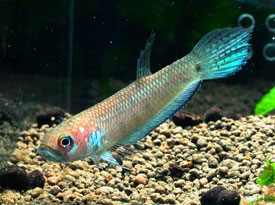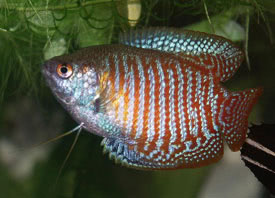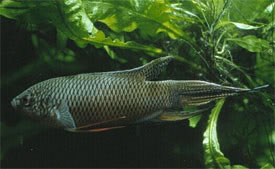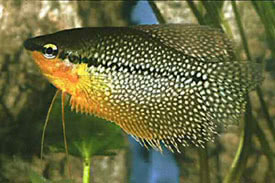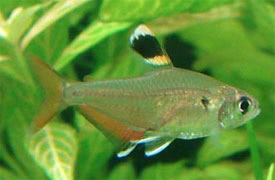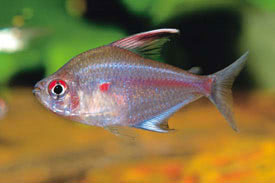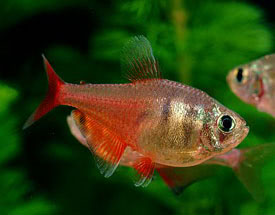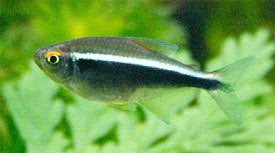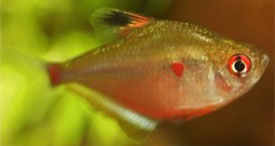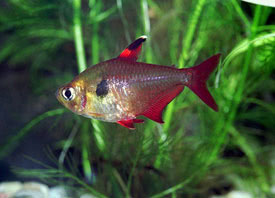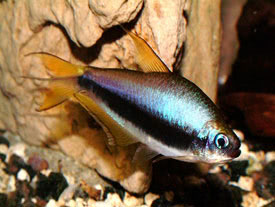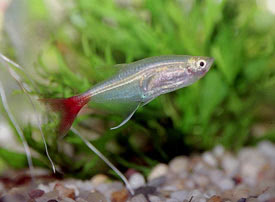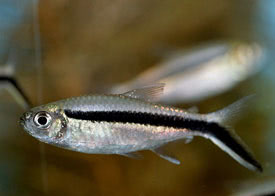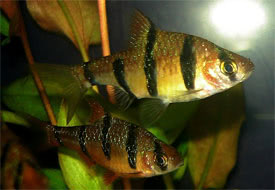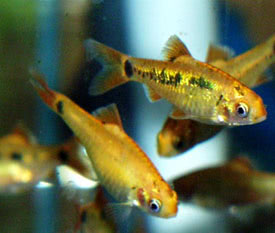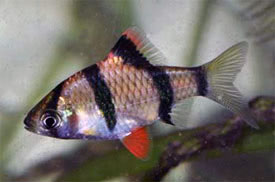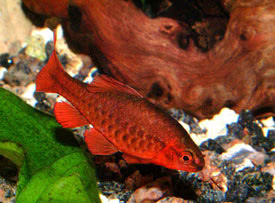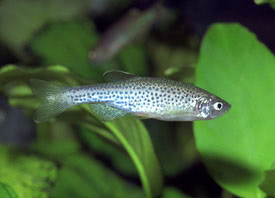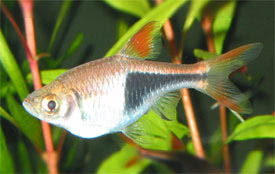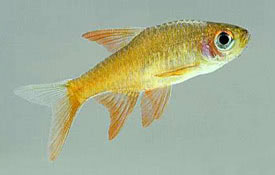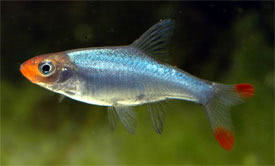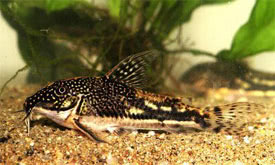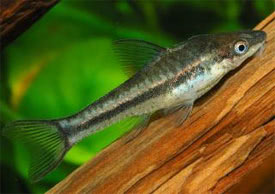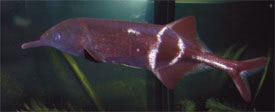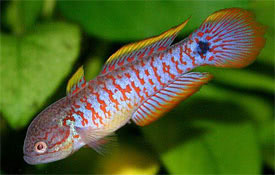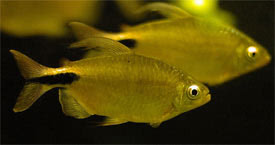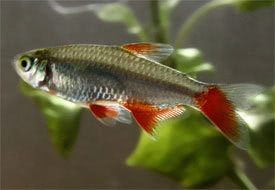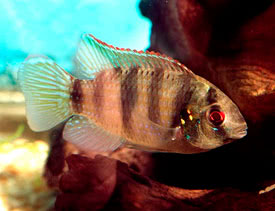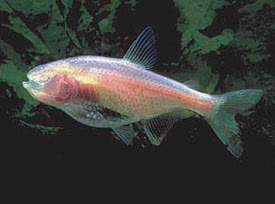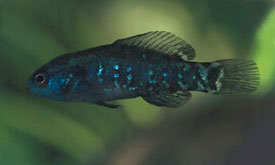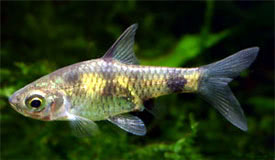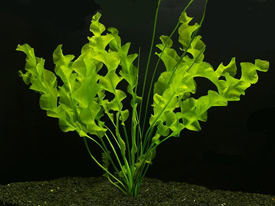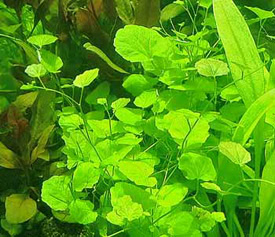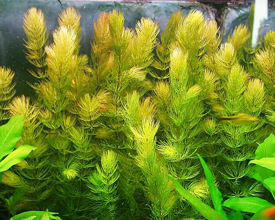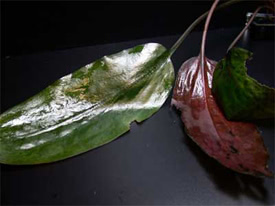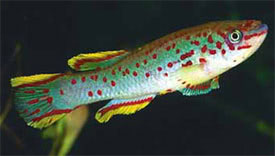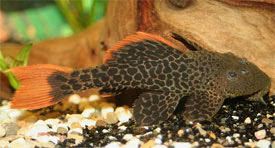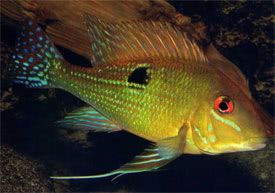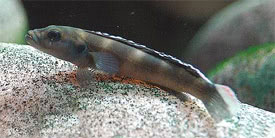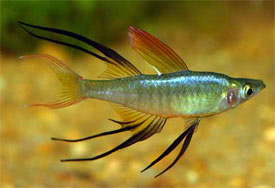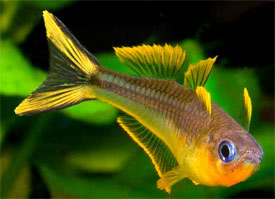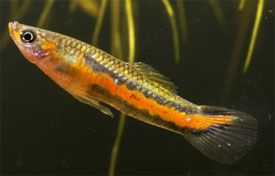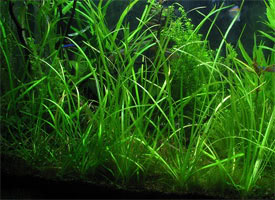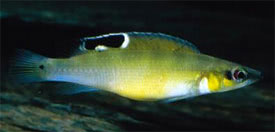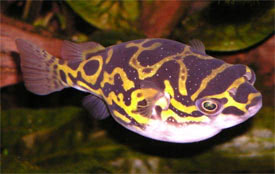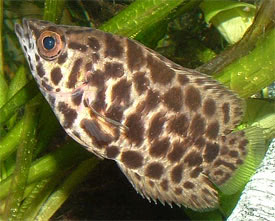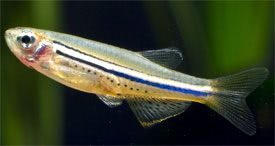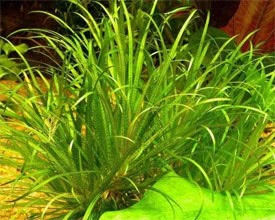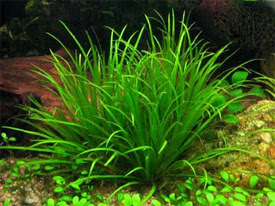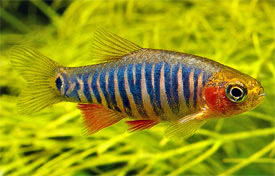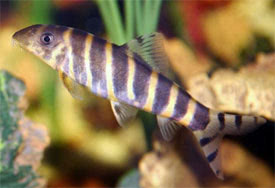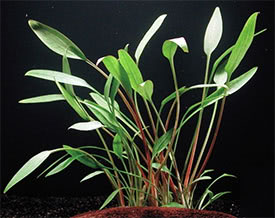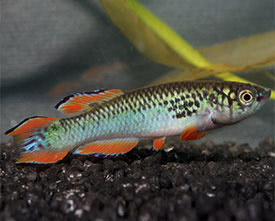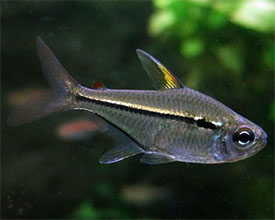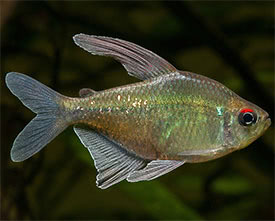
 Magyarul / Hungarian
Magyarul / Hungarian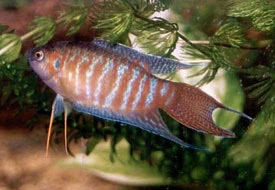
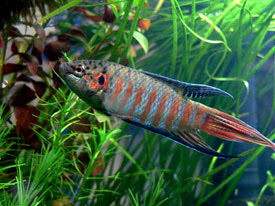
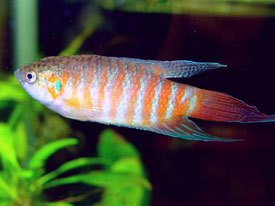
- Scientific name: Macropodus opercularis
- Common name: Paradise fish, Paradise gourami
- Group: Labyrinth fishes
- Habitat: Asia; Korea, China, Taiwan and Malaysia.
- Size: 8-11 cm
- Biotope: Found in marshy areas of Korea, China, Taiwan and Malaysia.
- Social behavior: Young fish make excellent community fish, but adult males often cause problems. If two males are confined together in a small tank (Under 30" or 30 gallons), they will fight almost as aggressively as male Betta splendens. Females may be attacked by males, even during non-spawning times. If attacks become to brutal on the female, remove her. Better results occur when several females are kept with one female. Best kept in a species tank.
- Diet: Algae, flakes, live, worms, crustaceans, insects, insect larvae. A favorite meal of the Paradise fish is planeria.
- Breeding: Easy.
- Tank: Minimum 80 litres
- Population: 1 couples for 80 litres
- Decoration: The tank should be well-vegetated. Fish prefer large tank with lots of open swimming area. A partial cover of floating plants is beneficial to aide in bubble nest building.
- Temperature: 10-30°C
- pH: 6-7,5.
- Hardness: 5,6-11,2 NK°
- Lifespan: 5-6 years
Description: The male of this species is brilliantly colored. The sides are distinguished by their bars which are a dark Blue / Green separated by vivid Red. The head and neck area are marbled in a Brown color. The gill cover is striped in Black boarded by bright Red or Orange. The tail fin can be stunning. It is completely Red in color and with the fringes extending out make a fantastic display. The dorsal and anal fins are dark in color and fade to a red hue as they near the tail fin. The ventral fins are also red in hue and can be tipped in White. The females are considerably duller with shorter rounded fins and only the side bars are well defined.
The Paradise fish is fairy easy to keep. They tolerate wide variations in water quality as well as temperature fluctuation's. Unfortunately they are only marginal as a community fish. They must be kept with other similar sized semi-aggressive fish . They will eat most smaller fish and rip the fins of the slower fish like the Angel. A tight-fitting cover is a must as they are accomplished jumpers. Like the Betta males will fight each other often to the death, so only keep one per tank. This species adapts readily to a wide range of foods, including small live foods, such as bloodworms, Tubifex worms, earthworms, glass worms and brine shrimp. They also accept the common flake and frozen foods. It is a good idea to supplement their diets with Spirulina based foods to provide vegetable matter.
A rise in temperature is usually enough to trigger the spawning in a well conditioned pair. This fish is an egg layer . The male will build a bubble nest to house the eggs during spawning . Like the Betta, the spawning tank must have plenty of hiding spaces like rocks caves and plants or the male may harm the female after all the eggs are laid. It is best to remove the female right after spawning. The eggs normally hatch in 24 to 36 hours. The fry start to swim the moment they are hatched . For best results the spawning tank should be shallow as the fry's labyrinth organ are not fully developed when born. The fry are very small and must be fed the finest of foods, growth is rapid.



